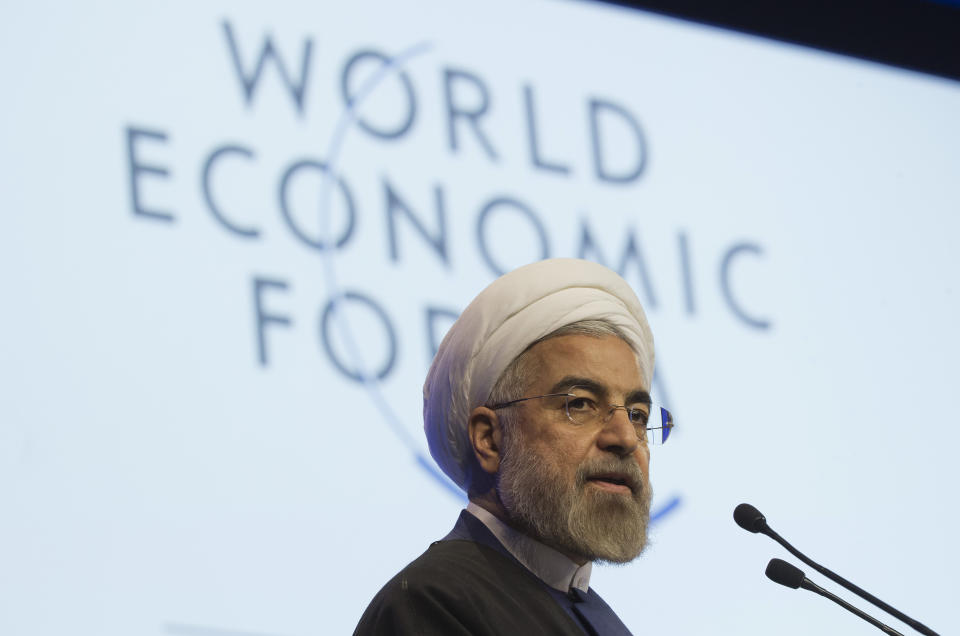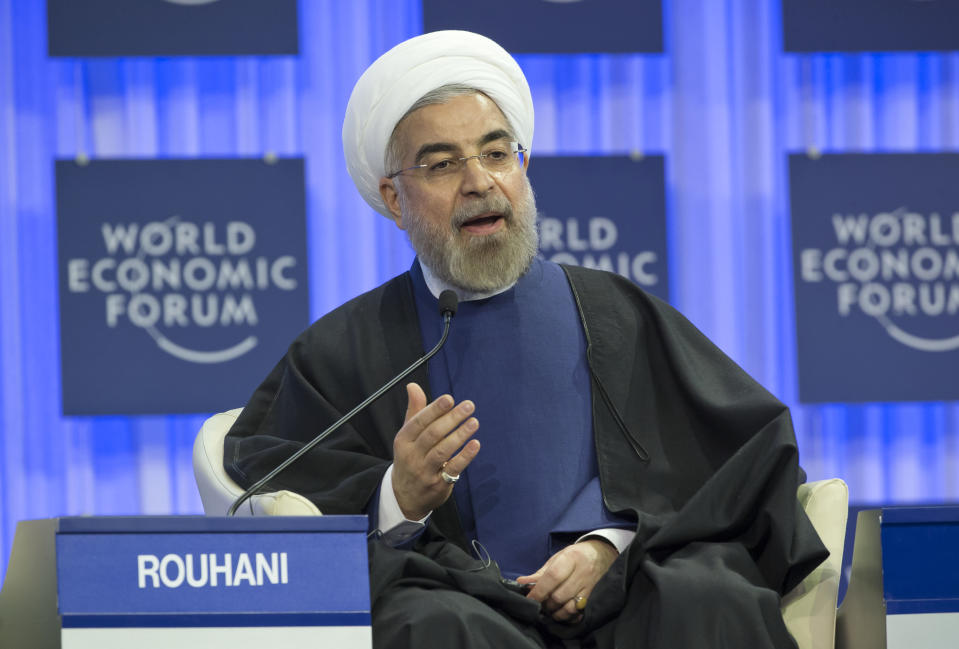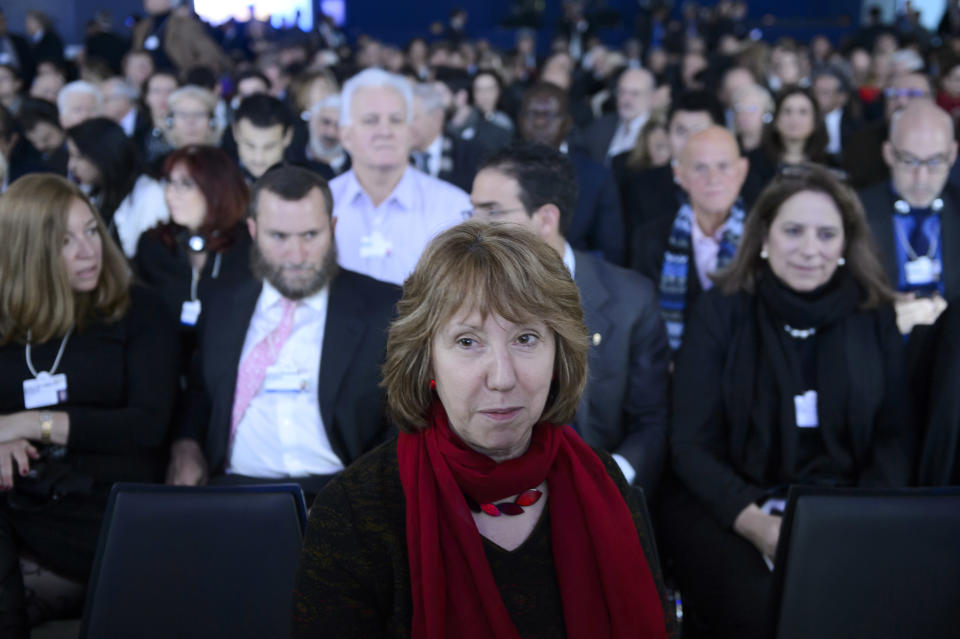Iran president pledges cooperation, trade ties
DAVOS, Switzerland (AP) — Iranian President Hassan Rouhani said Thursday his country is ready to do business and honor a deal to curb its nuclear program, in a speech aimed at persuading world leaders of Tehran's willingness to engage the global community.
Rouhani claimed the spotlight at the annual World Economic Forum as it coincided with the lifting of some international sanctions on Iran and the country's exclusion from Syrian peace talks being held just a few hours' drive away.
"I see the status of Iran pursuing policies of moderation, prudence and hope in the future global economy," Rouhani said. "Iran's economy has the potential to be among the world's top 10 in the next three decades."
Rouhani, accompanied by Foreign Minister Javad Zarif, who negotiated a deal with world powers to limit Iran's nuclear program, emphasized that Tehran will abide by the terms of that deal in exchange for some sanctions relief and the unfreezing of about $4.2 billion in overseas assets. Over the next half-year, Iran and world powers will try to forge a permanent deal.
The agreement paves the way for new business deals, which Rouhani and Zarif will be eager to discuss at the forum, which brings together about 2,500 political leaders, corporate tycoons and other public figures in the Swiss ski resort of Davos.
"We intend to reopen trade, industrial and economic relations, with all of our neighbors" including Turkey, Iraq, Russia, Pakistan and Afghanistan, Rouhani said in a speech to the forum.
Iran is "fully prepared and ready to engage with all neighboring countries" to reach solutions on issues including business ventures, environmental concerns, Palestinian rights, Persian Gulf security and Syria's humanitarian crisis, Rouhani said.
Rouhani said he hopes Iran's historical deep economic ties with Europe will be normalized and suggested that negotiations with the U.S. could pave the way to better relations. He reiterated that Iran has no intention of acquiring nuclear weapons but has the right to continue pursuing nuclear energy for peaceful purposes.
While he "does not see an impediment" to following up on the nuclear deal, he warned other countries might lack the political will to see it through.
Not to be outshined, Israel's Prime Minister Benjamin Netanyahu, President Shimon Peres and Justice Minister Tzipi Livni also attended the weeklong gathering in Davos.
Peres told reporters at a press briefing that it is now up to Iran to convince the world that his country is serious about not pursuing nuclear weapons.
"We are ready to make peace with the Iranian people, they have never been historically our enemies," he said. "We don't look for any wars, we don't look for any confrontation."
Netanyahu has also been a fierce critic of U.S.-led efforts to curb Iran's nuclear program, saying they don't go far enough to put the brakes on a country that supports Hezbollah, the militant group that has been vying with Israel for control of the region's power balance.
The Israeli and Palestinian conflict will be a point of focus for U.S. Secretary of State John Kerry, who was also at Davos, fresh from the Syrian peace conference in the Swiss cities of Montreux and Geneva.
Both sides resumed substantive peace talks under heavy American pressure last July, the first time they had done so in almost five years. There have been virtually no signs of progress, however, and the talks are stymied by accusations from both sides. But Kerry plans proposals for a framework deal with a target date of April.
On the Syrian crisis, which on Friday will see the first face-to-face talks between Syria's government and opposition in Geneva, Rouhani suggested that "the best solution is to organize free and fair elections." Iran's Shiite-led government and financial support is central to President Bashar Assad's grip on power.
___
Adam P. Pemble contributed to this report.





